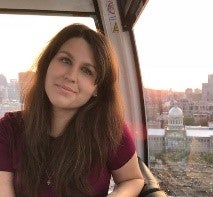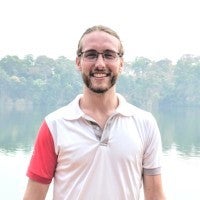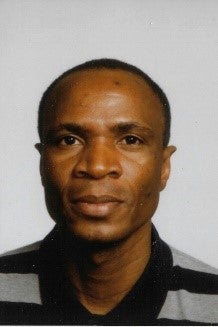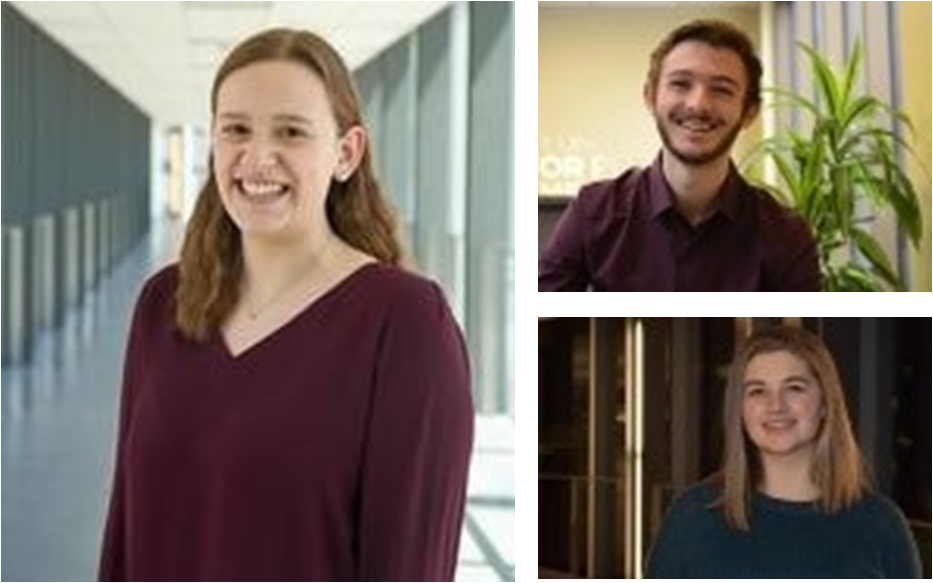Many students engage with the programs and values of The Kindred Credit Union Centre for Peace Advancement on their journey to graduation. The lessons learned and questions asked sit with students who take classes taught by educators in the Centre, catapulting them into high-impact projects and careers.
PACS 315: Engineering and Peace, aims to inspire students to catch the imagination of PeaceTech and think about the important, reciprocal contributions Peace and Conflict Studies (PACS) and Engineering have to make to a complex world. Taught by Dr. Paul Heidebrecht, former engineer and current Director of the Kindred Credit Union Centre for Peace Advancement, it challenges students to articulate the way engineers see the world, how that shapes their work, and why that should matter to peacebuilders.
Engineering and Peace is a course that allows students to use higher-order levels of thinking to explore issues and connections they may never have considered before. In Heidebrecht’s words: “This unique course engages the topics of PACS and Engineering unlike any other course in either discipline. Every student is coming to this course on a level playing field, participating in cross-disciplinary discussions that challenge them think about their own studies in a new way.”
Whether it is joining a social impact competition, educating their peers on PeaceTech, creating their own start-up, or simply becoming an enlightened professional, PACS 315 empowers students to think critically about how to advance peace within the modern, technological landscape. Below are a selection of student profiles from PACS 315 alumni that highlight how the course has been a part of the journeys of numerous changemakers:
Sabrina Renna (2016) was a leader, not only within the class, but also in her entire program. Renna, a 2019 graduate of Civil Engineering, was the one of the Valedictorians for the Engineering Spring 2019 convocation at the University of Waterloo. In
her speech she stated that engineers “require efficient interdisciplinary collaboration between engineers and non-engineers alike in response to the increasingly volatile political landscape.” Renna has embraced peace as being her business, bringing a sense of social awareness to her profession.
Jared Baribeau (2017), a 2018 Systems Design Engineering graduate, has continued to be involved at the Centre long past handing in his final exams. Shortly after taking the course, he joined Richard Yim, another PACS 315 alumni, at his venture
Demine Robotics, and pursued his passion for PeaceTech. Demine Robotics has been a participant in the Epp Peace Incubator program since 2016 and has just finished executing their first field tests with their prototype. With a hand in Cambodia and a hand in Canada, Baribeau is helping this international enterprise revolutionize the future of demining.

Moffat Sithole (2017) joined PACS 315 to fulfill the Peace and Conflict Studies minor requirement for his Sociology undergraduate degree. While not new to PACS, Moffat describes his experience in PACS 315 as, “the final straw that helped facilitate my final decision to aspire to become a student in peace practice.” Moffat went on to complete his
Masters in Peace and Conflict Studies in Winter 2020, following an internship in Zambia last summer. Moffat is now exploring the potential of a micro-financing mechanism in Zambia that would help alleviate high unemployment rates in vulnerable populations by financing small businesses.


The
PeaceTech Living Learning Community at the University of Waterloo, a cluster of students from various years and programs that explore the intersection of technology and peace, began in 2019. PeaceTech captured the interest of three PACS 315 alumni and led them to step up as Peer Leaders:
Neil Brubacher (2018)in Systems Design Engineering;
Hannah Kaethler (2019) in Knowledge Integration; and
Hannah Bernstein (2019) in Nanotechnology Engineering. Brubacher states, “I’ve always been captured by the questions, “where is technology taking us?” and, “where should technology be taking us?” Courses such as Paul Heidebrecht’s “Engineering and Peace” encouraged me to tackle such questions head-on.”
PACS 315: Engineering and Peace will be taught online by Heidebrecht in Fall 2020. Course selection for returning students is open from June 26 – July 9.






